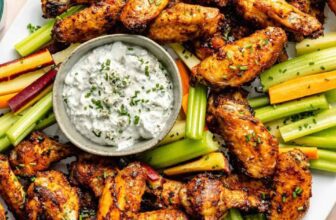
From memory, I’d experienced pain in my throat from eight years old. It often felt tight, uncomfortable, and I went through phases of struggling to swallow, and not eating much more than soup at a time. It was a cycle of physical symptoms followed by deep anxiety where I didn’t know which began first.
My parents, teachers and GP at the time, believed my issues were related to my mental health, rather than any physical manifestation and no further testing or investigations were made.
Fast forward to many further and more severe episodes throughout university where I would wake nightly choking, gasping for air, I again put down to anxiety, and suffered in silence, it was only after an acutely painful bout of tonsilitis in 2018, that a locum doctor in urgent care, spotted a nodule on my thyroid saying he could see it move when I spoke. Up until that point I’d just accepted that I experienced nightmares and chokiness at night due to anxiety.
As the nodule was hidden, pressing on my wind pipe, hence the choking, it had not been immediately obvious to my own usual GP or anyone else.
An urgent scan revealed a large nodule but a fine-needle aspiration/ biopsy was inclusive and due to the the position of it, an operation was required and promptly.
What followed was a tougher recovery than two C-sections, and whilst most of my thyroid had been thankfully saved in surgery, and I still to this day, miraculously, avoided an underactive thryoid despite that seeming an inevitability, I did continue to experience odd and strikingly similar symptoms to before the thyroidectomy. Almost phantom nodule-like. More of that to come.
After a 10 day wait, I was informed, that the nodule was benign. My surgeon had dropped my odds from 60/40 initially to 90/10 post op but to receive the all clear was a huge relief.
I was lucky and grateful. It had been a huge ordeal, nonetheless because I’d lost my young aunt Zak to a rare form of thryoid cancer not long before.
My consultant stated at the time that nodules tend to grow slowly but he didn’t think mine started during my younger years. Who’s to know however, I have met others since who had large nodules as children?
Medicine is an art not a science as many doctors would state themselves in agreement.
What followed, for years post-op, despite being informed I would have made a full recovery within a couple of months, were troubling reflux symptoms, so frightening in fact that I had phoned for an ambulance on several occassions during choking episodes in the night.
Every one of us recovers differently, please remember that when you’re told estimations.
An apnea test was negative-I don’t snore so that was inevitable but important to rule out-and my GP soon deduced it must be reflux, prescribing omeprazole which worked until it didn’t.
It was only a year or so ago that during a second lot of scans (the first revealed all was fine, no hernia etc), I discovered, luckily, a muscle weakness in my throat known medically as Esophageal spasm. This is a condition where the esophagus/ food funnel which transports food from your mouth to your stomach, experiences involuntary contractions that are either painful or not. I often felt as if food were stuck in throat or chest and suffered through stacks of Rennies to no avail.
And it was only becoming worse. Just when you think the worst is over after an incision to the throat and literally years in my case of recovery after the operation. For those with nodules not on the windpipe, recovery is quicker of course.
Now, it was by chance that my esophagus spasmed during a barium swallow X-ray. Read more on how to diagnose this if you’re keen to investigate for yourself and I finally had an answer to why the left side of my throat felt strange and I was still choking at night, especially premenstrually (as all muscles tend to soften).
So, what has helped me reduce spasms, which mostly, in my case, happen at night:
Following a low carb/ keto diet. Research shows that low-carbohydrate diets can help reduce symptoms of reflux and GERD and improve esophageal acid exposure. Studies demonstrate this also applies to those experiencing sleep apnea too. Low carb helps with weight loss and maintenance which is a contributing factor to reflux but not the only factor. I was the slimmest I’d been in my adult life after the operation (as eating was so hard) and yet still suffered. Speak to your doctor before embarking on a new diet.
A strict sleep routine. I try to follow a sleep schedule, sleeping at the same time approximately (small child allowing) every night after eating a light, small meal beforehand, and taking some long deep breaths pre-slumber (in for 4, out for 7) as I find anxiety can exacerbate indigestion in me.
Daily cardio. Mostly for weightloss as I still have baby weight to lose and my daily step count is approximately 10-15k steps a day. Cardio helps me mentally and physically.
I find when I follow these steps and consistently I might choke once a month, if at all which is a huge improvement on nightly.
My hope in writing this blog post, is to help anyone who is baffled by their symptoms and hope to seek clarity through further insight and investigations. I wish I’d read something similar when I was going through hell with my throat issues sans answers, diagnosis or any real understanding of what was going on in my body. It’s not in your head. If you’re worried, seek help and second opinions where needed.
Thanks.
Pre-order my debut children’s book
Greek Myths, Folktales & Legends for 9-12 year olds
Published by Scholastic. Available on Amazon
Disclaimer: This content was automatically imported from a third-party source via RSS feed. The original source is: https://honestmum.com/symptoms-i-experienced-post-thyroid-op-thyroidectomy-including-reflux/. xn--babytilbehr-pgb.com does not claim ownership of this content. All rights remain with the original publisher.







